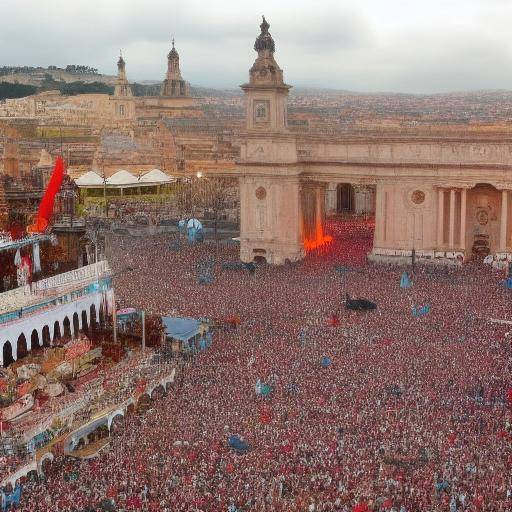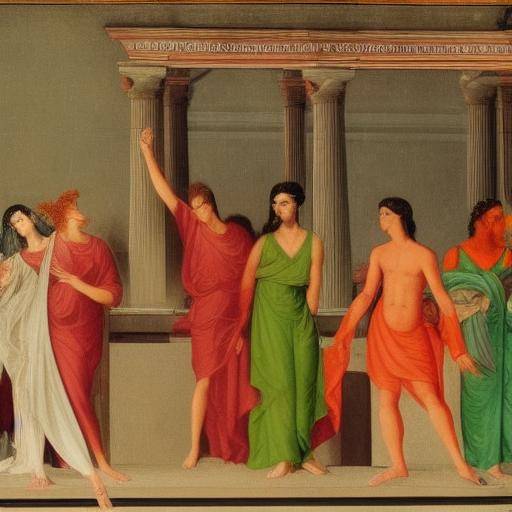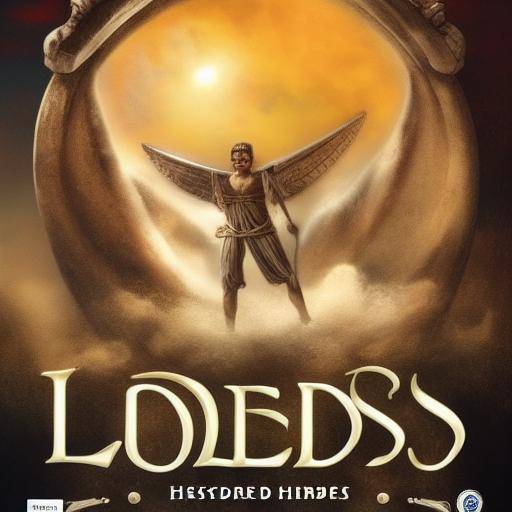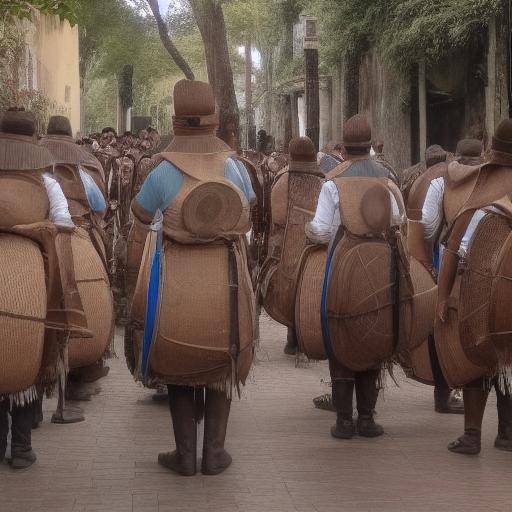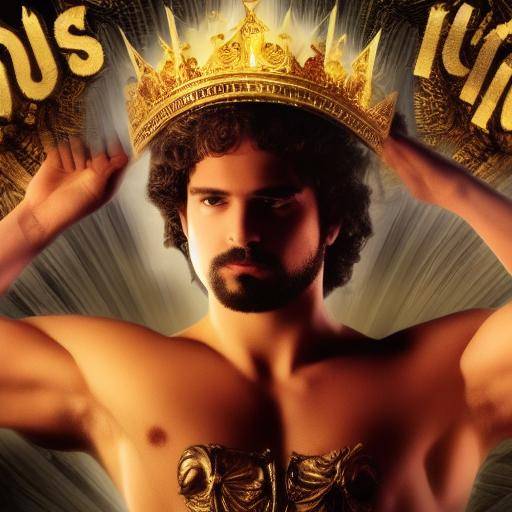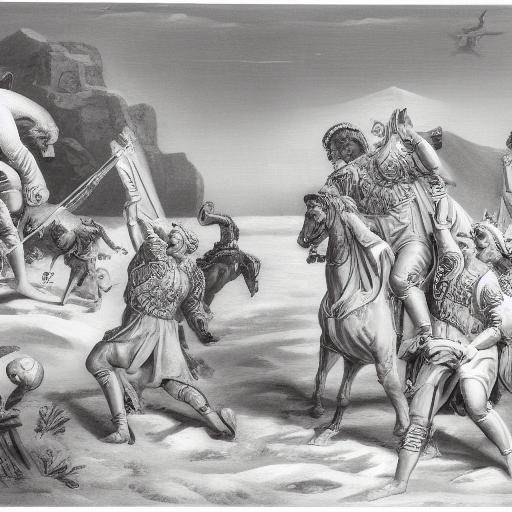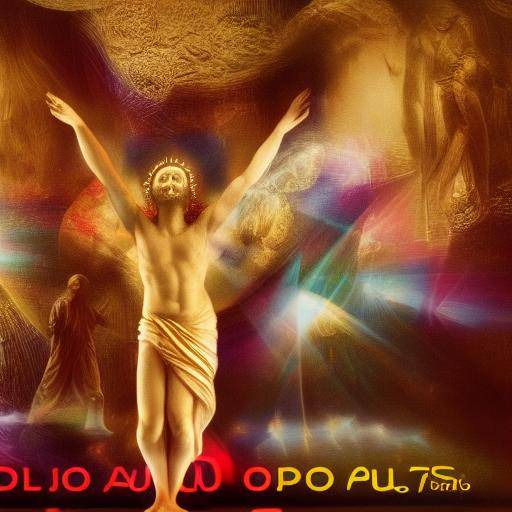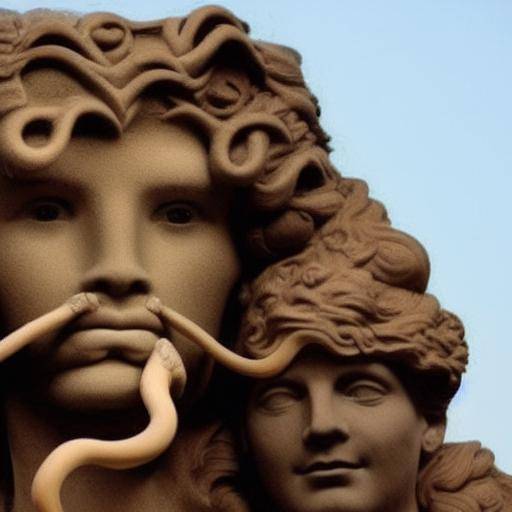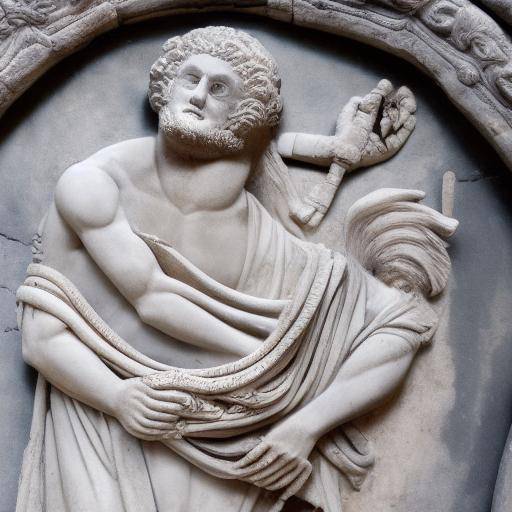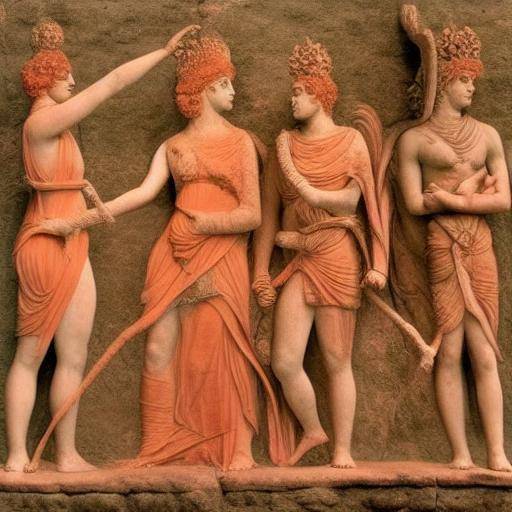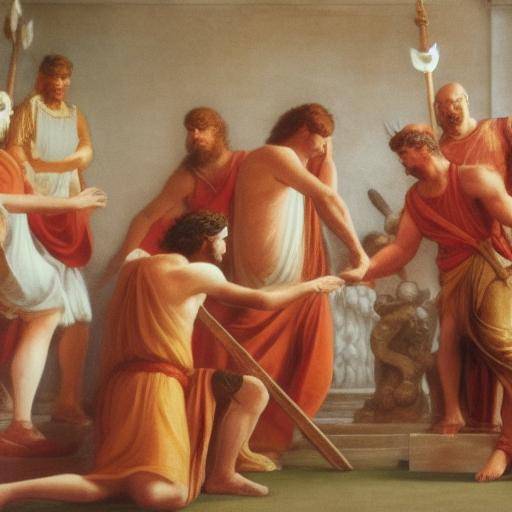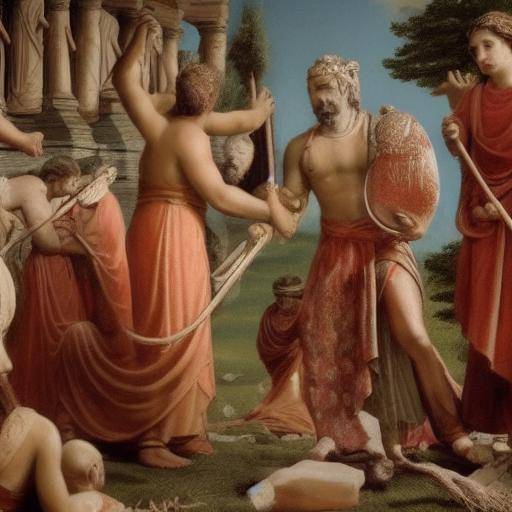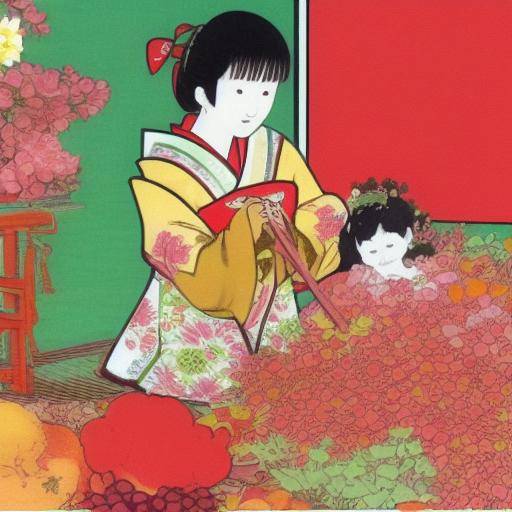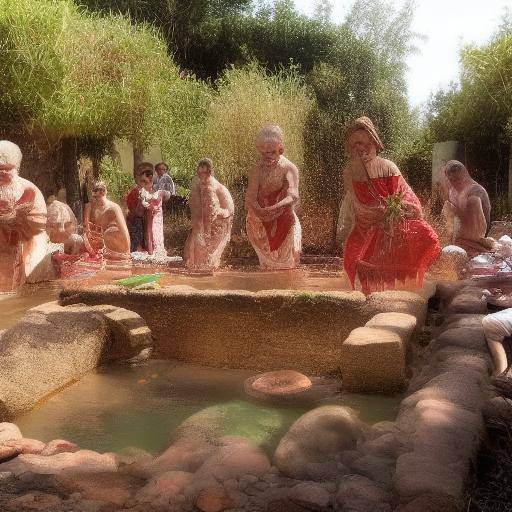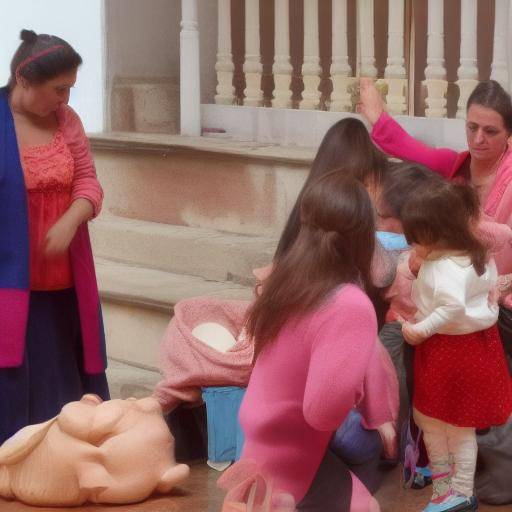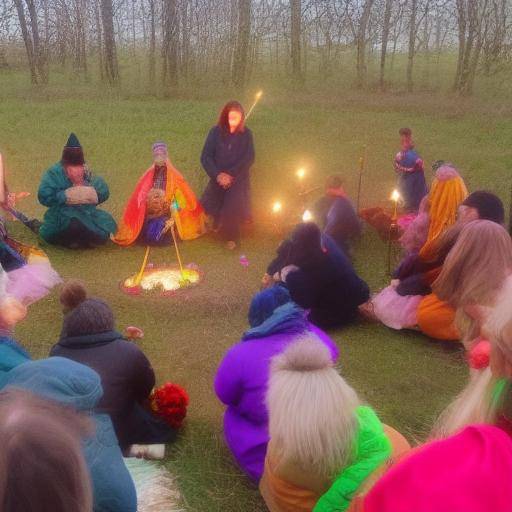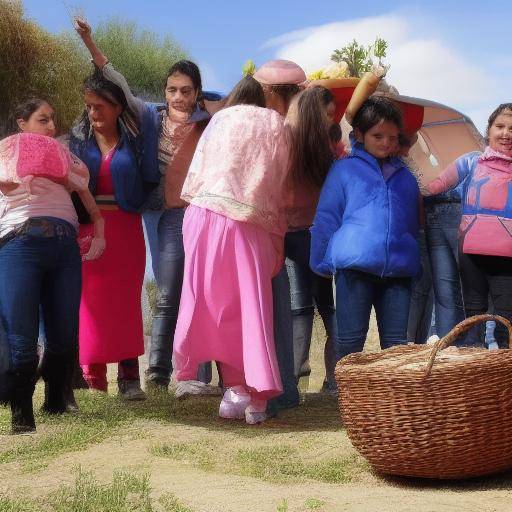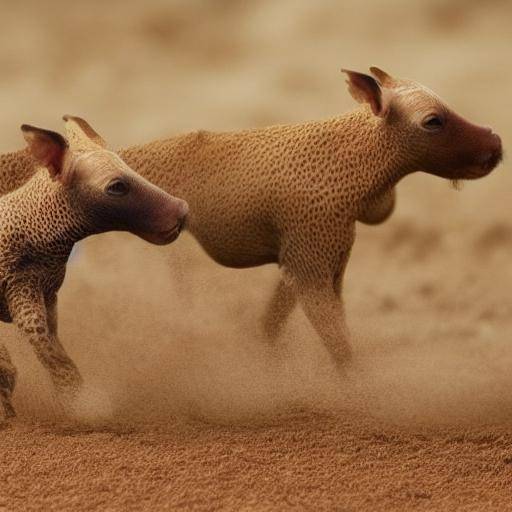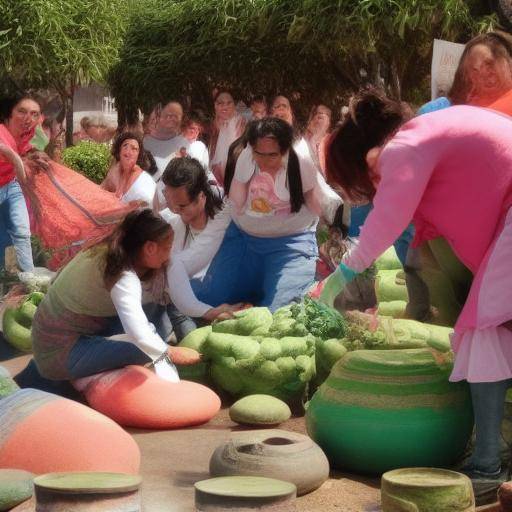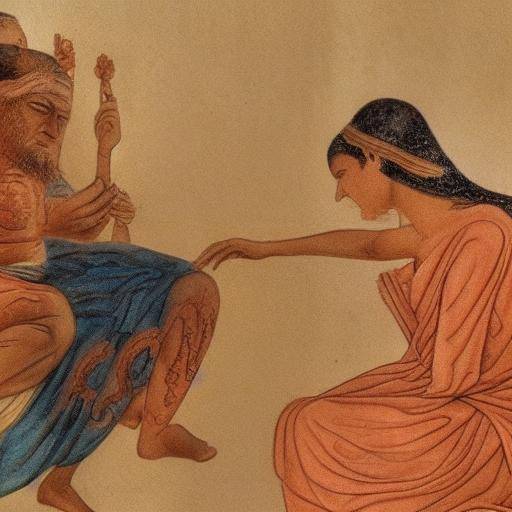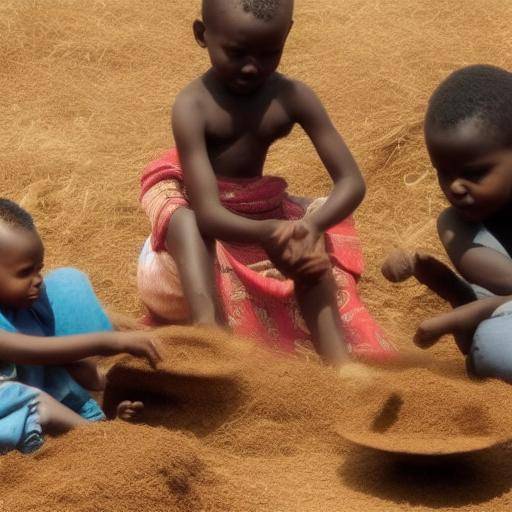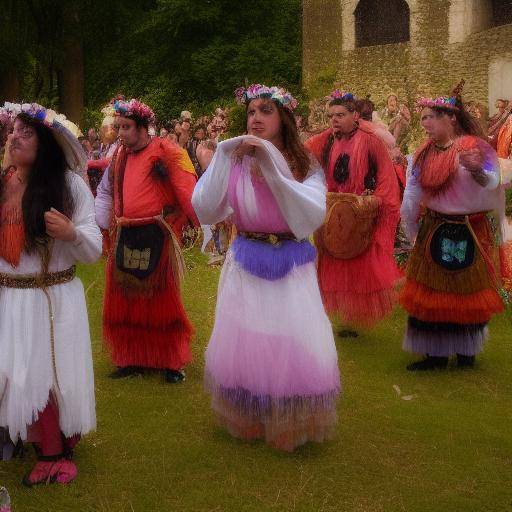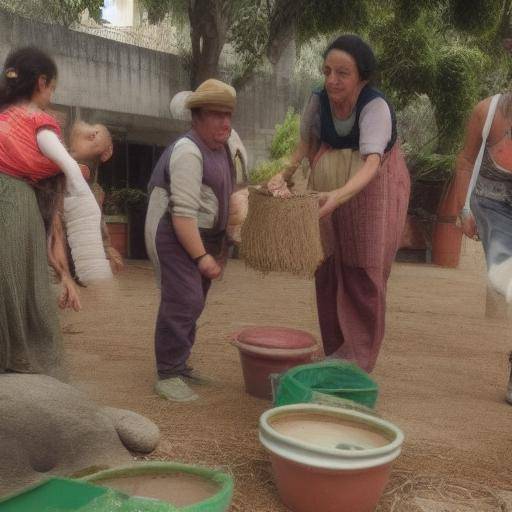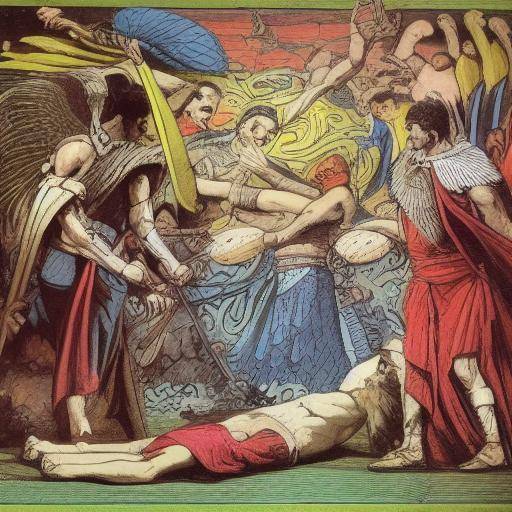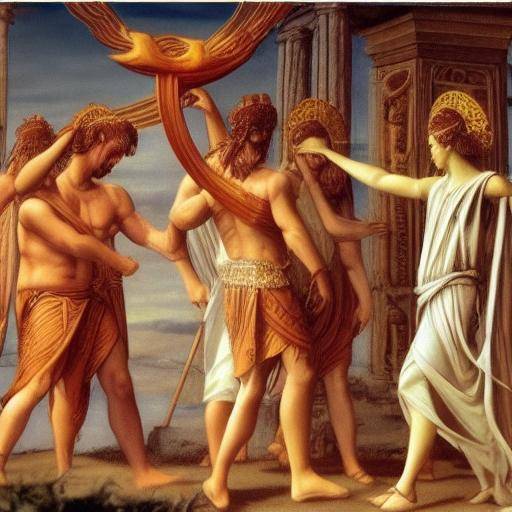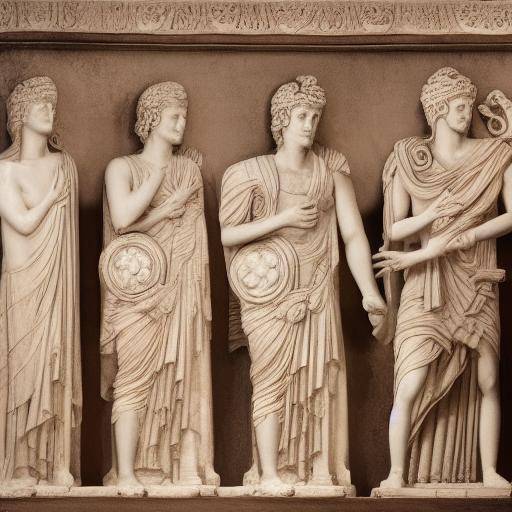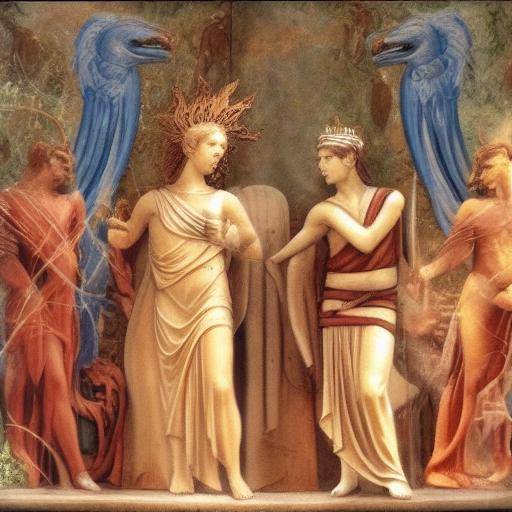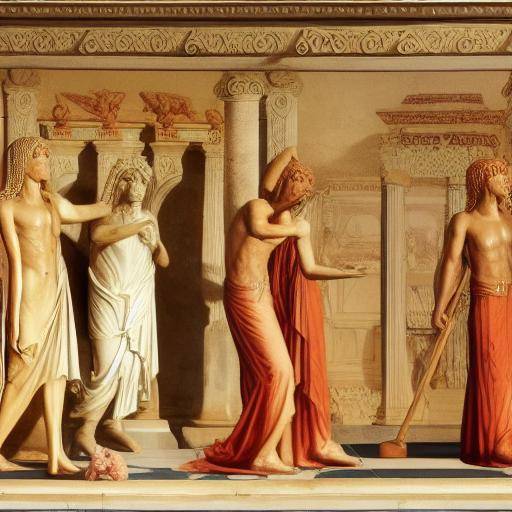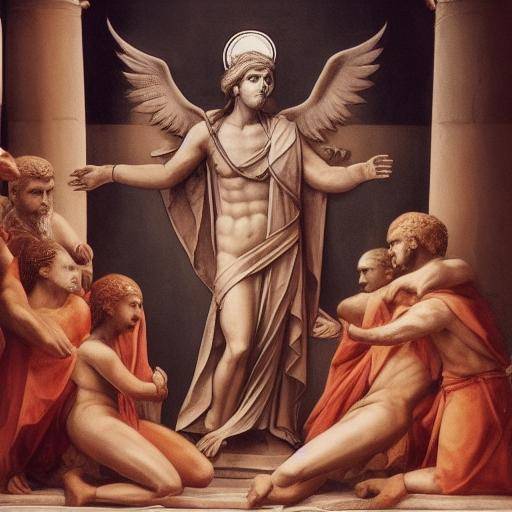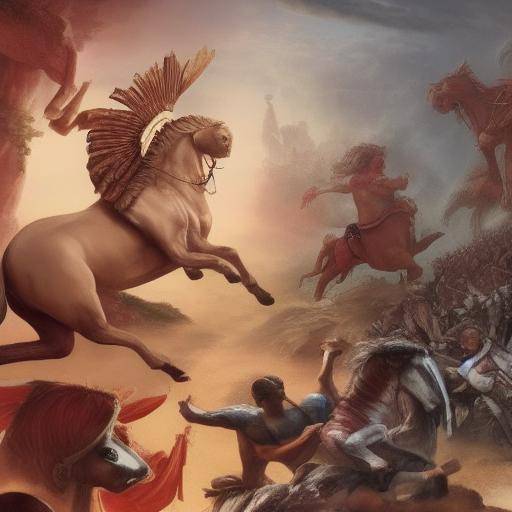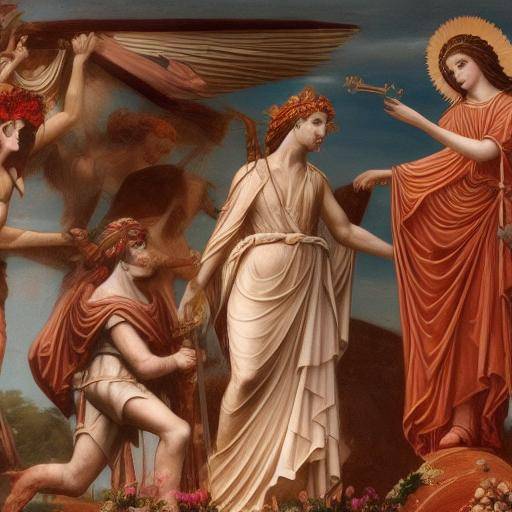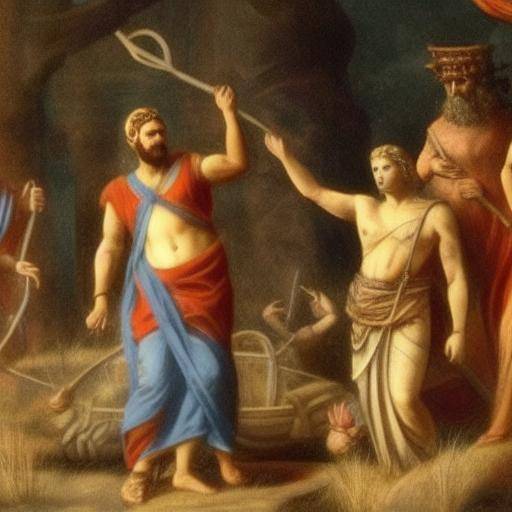
Greek mythology has a vast and complex network of beliefs and rituals, among which are the ancient rites of fertility. These rituals, inseparable from Hellenic culture and religiosity, played a fundamental role in ancient society, marking rhythms and life cycles, and establishing a close link between the gods, earth and fertility. In this article, we will thoroughly explore the history, evolution, meaning and different perspectives of fertility rites in Greek mythology, as well as its lasting relevance.
Introduction
The Greek mythology, the priceless legacy of ancient Greece, transcends time and space, revealing a vast and complex world populated by deities, heroes and rituals that still echo in contemporary culture. The ancient rites of fertility, in particular, occupy a prominent place in this fascinating universe, being an unequivocal manifestation of the close relationship that the Greeks established between nature, divinity and life itself. Throughout this article, we will enter the vast and rich cosmos of Greek mythology, unraveling the mysteries and symbolisms surrounding the rites of fertility, and exploring its relevance in ancient history and its influence on the cultural and religious practices of the time.
History and Background
The ancient rites of fertility in Greek mythology have their roots in the depths of history, rooted in the complex interactions between the gods, the mortals and the earth. Since ancient times, the Greeks venerated nature and understood the vital importance of fertility for the survival and prosperity of the community. This understanding was reflected in a wide range of rituals, festivities and ceremonies designed to promote the fertility of the earth, animals and human beings, and to honor the divinities that governed these fundamental aspects of existence.
The Greeks believed that fertility was closely linked to the benevolence of the gods, who should be peaceful and honored through offerings, ceremonies and devotional acts. The festivals of Deméter, the goddess of agriculture and fertility, such as the eleusine mysteries, were especially significant in this context, marking the agricultural cycle and the renewal of life. Likewise, the cults of Dionysius, the god of wine, vegetation and fertility also played a crucial role in the celebration and promotion of fertility, through ecstatic and mystical rituals that exalted the vital and wild nature.
Over the centuries, these fertility rites were intertwined with various religious, cultural and social practices, setting up an intertwined complex of beliefs and traditions that deeply impacted the daily lives of the Greeks. The recognition of fertility as a divine and fundamental gift for the survival and prosperity of the community permeated all aspects of existence, from agriculture to human reproduction, establishing a close relationship between the sacred and the profane, the natural and the supernatural.
Analysis in Deep
Fertility rites in Greek mythology acquired a symbolic and ritualistic dimension that transcended its mere practical functionality. Beyond ensuring abundant harvests or livestock fertility, these rituals embodied an ancestral worldview that sought to harmonize the relationship between human beings, nature and the divine. Participation in fertility rites not only meant ensuring material prosperity, but also confirmed the integration of the individual into a broader cosmic order and the cyclical renewal of life.
The Eleusian Mysteries
One of the most famous fetility rites of ancient Greece was the Eleusinos Mysteries, dedicated to Deméter and Persephone. Celebrated in Eleusis, these mysteries symbolized the cycle of life, death and rebirth, and were fundamental to ensuring the fertility of the earth and the continuity of life. Participants, known as initiates, went through a series of secret rituals that promised them a more prosperous life and a life expectancy after death.
The Dionysian Rites
Dionisio, the god of wine, vegetation and fertility, was worshipped through ecstatic rituals that included frenetic dances, songs and wine intake. These celebrations, known as Bacanales, sought to free the participants from their inhibitions and to connect with the primordial nature and fertility of the earth. The cult of Dionysius emphasized the importance of regeneration and rebirth, recurring themes in the rites of Greek fertility.
Exhaustive examination
The intrinsic value of fertility rites in Greek mythology was reflected in its ability to synthesize and express the profound interconnections between the material and spiritual dimension of existence. These rituals, relieved by their sacred and transcendent character, transcended the purely agrarian or reproductive sphere, acquiring a cosmogenic and existential meaning, in which fertility was erected as the bridge between the human and the divine, the finite and the infinite.
Fertility, understood as a perennial process of growth, regeneration and abundance, acquired a ritual and ceremonial form that reaffirmed the interdependence between humanity and the gods, between the fertile land and the fruits that he generously donated. This symbolic integration of the rites of fertility in everyday life promoted a holistic and harmonious conception of the world, offering a way of communion with the natural and spiritual forces governing the universe.
Comparative analysis
By comparing fertility rites in Greek mythology with other cultural and historical systems, it is possible to appreciate the universality and diversity of ritual expressions related to fertility. While in Greek mythology, the cults of goddess such as Deméter or gods such as Dionysius represented specific facets of fertility, in other traditions, such as Egyptian, Mesopotamian or Nordic, deities and rituals were manifested equally fundamental to promote the fertility of the earth and human procreation.
Despite cultural and religious differences, all these traditions shared the conviction that fertility was a vital and sacred element, the promotion of which required divine intervention and the active participation of the community. In addition, symbolic representations and ritual practices associated with fertility exhibited surprising similarities in their theme and purpose, revealing a profound resonance between human aspirations and concerns at different times and contexts.
Practical Tips and Accessible Recommendations
Although the rites of fertility in Greek mythology belong to a remote past, its meaning endures until today, providing teachings and reflections on our connection to nature, divinity and life itself. In a world marked by technology and the accelerated pace of modern life, the revaluation of fertility, not only in agricultural or reproductive terms, but as a symbol of renewal, abundance and fullness, acquires a renewed relevance.
It is essential that we now recover the deep essence of fertility rites, adapting it to our contemporary context. This may include eco-sustainable practices that promote soil fertility, biodiversity conservation and harmony with the natural environment. Moreover, the conscious celebration of fertility in all its manifestations, through personal or community rituals, can help to restore the lost balance between humanity and the biosphere.
Conclusions
The ancient rites of fertility in Greek mythology, rooted in the deep hellenic worldview, transcend the barriers of time and invite us to reflect on the perennial human quest for meaning, connection and fullness in harmony with the natural and divine environment. Its validity and relevance in contemporaryity point to the importance of honoring and preserving fertility in all its manifestations, not only as a resource for subsistence, but as a sacred bond that unites the earthly with the transcendent.
FAQs
1. What role did fertility rites play in ancient Greek society?
Fertility rites played a crucial role in ancient Greek society, as they were fundamental to ensuring agricultural prosperity, human reproduction and harmony with nature and gods.
2. What deities were associated with fertility in Greek mythology?
The main deities associated with fertility in Greek mythology were Deméter, the goddess of agriculture, and Dionisio, the god of wine and vegetation. Both divinities had cults and festivals dedicated to fostering fertility and abundance.
3. How were the Eleusinos Mysteries celebrated?
The Eleusin Mysteries were a set of secret rituals celebrated in Eleusis, dedicated to Deméter and Persephone. The initiates participated in ceremonies that symbolized the cycle of life, death and rebirth, and these rituals were believed to give blessings and promises of life after death.
4. What symbolism did Dionisio have in the fetility rites?
Dionisio symbolized regeneration and rebirth through wild nature and the vitality of vegetation. Their rites, which included ecstatic dances and wine intake, sought to free the participants and connect them with the primordial energy of nature.
5. How were the fetility rites integrated into the everyday life of the Greeks?
Fertility rites were deeply integrated into the everyday life of the Greeks, influencing agricultural practices, festivities and religious ceremonies. Participation in these rites was a way of ensuring divine benevolence and community prosperity.
6. What can we learn from fertility rites in Greek mythology today?
Fertility rites in Greek mythology teach us the importance of honoring nature and our connection with it. Today, we can apply these principles by promoting sustainable practices and celebrating fertility in all its forms as a symbol of renewal and abundance.


